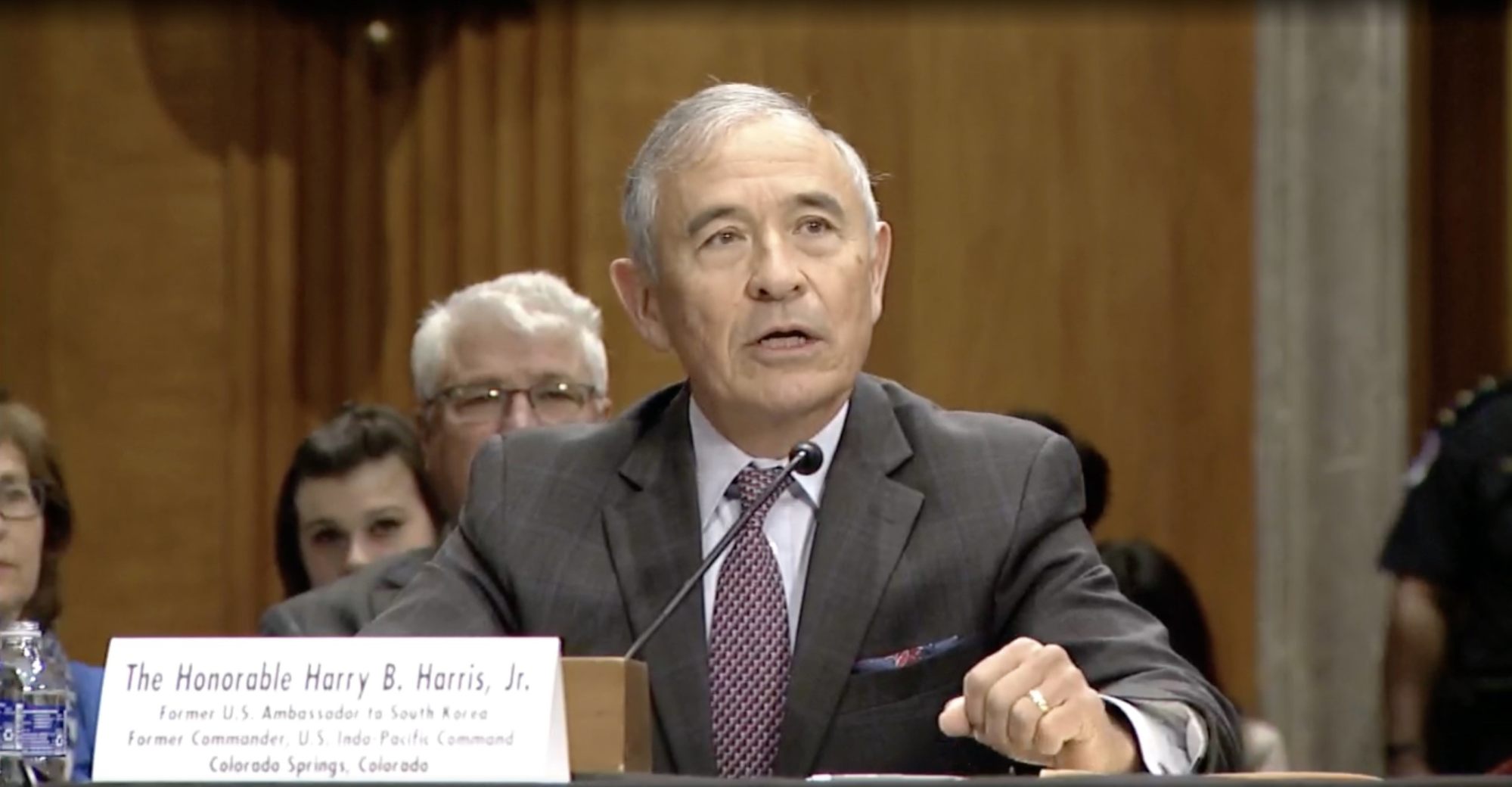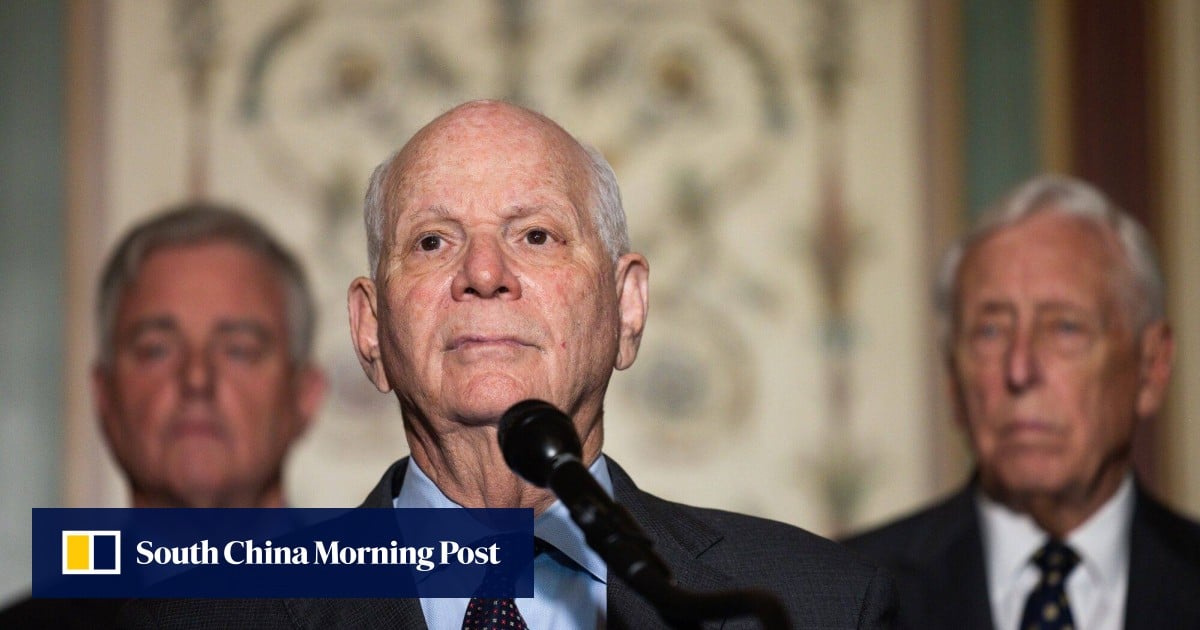
New Jersey Democrat Bob Menendez said he believed the US faced “a behemoth of an economic challenge with China in this region”.
Engaging in free-trade agreements in the Indo-Pacific could strengthen “economic opportunity and loosen the noose that China has with these countries”, he said.
Harry Harris, a former American ambassador to South Korea, echoed the senators’ calls, arguing that the US was missing “great opportunities”.
The US put “adequate emphasis” on diplomatic, military and economic components, he testified, but he was not convinced “we’re advocating all the time for the right things in those three buckets”.
US, Chinese defence chiefs talk for first time in more than 2 years
US, Chinese defence chiefs talk for first time in more than 2 years
“I did it because of the security relationship between the TPP countries that I felt would have been strengthened,” he recalled. “We lost that opportunity.”
The initiative is one of the Biden administration’s main platforms for diplomatic outreach in the region, promoting issues like supply chain-resilience, trade cooperation and climate resilience efforts.
Critics of the framework have said it lacks concrete mechanisms to discuss contentious issues such as reducing tariffs and opening the US market to Indo-Pacific goods.
For decades, the US has resisted joining Unclos, largely owing to conservative members of Congress opposing the environmental and legal obligations it stipulates for ratification.
“That is, in my opinion, shooting ourselves in the foot.”
The hearing transpired as the Biden administration strives to boost defence engagement with partner countries in the Indo-Pacific.
A US governor in the Pacific plans ‘lonely’ pivot away from China
A US governor in the Pacific plans ‘lonely’ pivot away from China
The drills were aimed at showing “our collective commitment to strengthening regional and international cooperation in support of a free and open Indo-Pacific”, according to a joint statement from the countries.
Walter Russell Mead of the Hudson Institute, a Washington-based think tank, testified on Wednesday that while military engagement was essential, “the best way to ensure the long-term stability of a free and open Indo-Pacific without Americans going to war is to encourage and support the economic growth of countries” in the region.
“As these countries are more dynamic, powerful and wealthy, even in Beijing they’ll understand that their dream of dominating the Indo-Pacific is simply not realistic,” said Mead, who is also a professor at Bard College.
“The United States needs to be absolutely clear about our commitment to the region on a multidimensional basis – military, economic, cultural – and in every possible way to deepen our links.”

